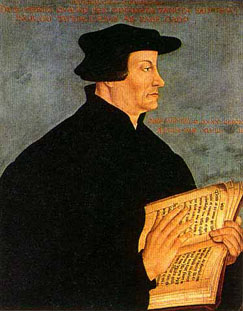"Catholic Christians all of them": Richard Field on Lutherans and Zwinglians

From Richard Field's Of the Church (1606/10), a refutation of the allegation by a Tridentine apologist that the differences "between the followers of Luther and Zuinglius" were in matters of faith, producing a fundamental division between the two traditions. Mindful that Field was a leading divine in the Jacobean Church of England - described by Paul Avis as "one of the most stupendously learned of Anglican theologians in an age when Anglican clerical scholarship was the wonder of the world" - his insistence (following Jewel and Hooker) that the differences between Lutheran and Swiss Reformed eucharistic theologies were not fundamental is a significant insight into an important and influential stream of thought in the Jacobean Church. What is more, note his defence of the 'Zwinglians'. (While Field does also use the term 'Calvinist' for the Swiss, it is clear throughout that he regards Zwingli as the figure who chiefly shaped the Swiss Reformed ...



